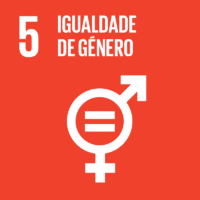Ciência_Iscte
Publicações
Descrição Detalhada da Publicação
Proceedings of INTED2019 Conference
Ano (publicação definitiva)
2019
Língua
Inglês
País
Espanha
Mais Informação
Web of Science®
Esta publicação não está indexada na Web of Science®
Scopus
Esta publicação não está indexada na Scopus
Google Scholar
Esta publicação não está indexada no Overton
Abstract/Resumo
Brazil is an extremely socially unequal country, with 208 million inhabitants. Only 23.9% of the
population belong to high- and middle-class strata (A and B), while 76.1% belong to the poorest ones (C, D, E). During the past two decades, Brazilian State has promoted several policies to face poverty, but it is still far way from being a country with equal opportunities regarding citizenship practices. Even though there have been improvements to promote the digital inclusion - or inclusion in the network society - of the poorest communities and people, they have been insufficient to bring social equality and fair economic development for all. Digital inclusion has been providing much more than just the use of Information and Communication Technologies copping with ICT’s technological evolution, but it
also offers the possibility of users’ socialization, participating and living in the network society, thus better exercising digital citizenship. However, the widespread use of Internet-enabled mobile phones has raised questions as to whether the Telecenter program will continue to be justified. This paper aims to contribute to this debate, presenting some results of a research analysis on the use of ICT in Brazilian homes, carried out in Belo Horizonte's Telecenters (as part of a PhD Project). Findings suggest that Telecenters still provide a number of services that cell phones cannot replace, such as training courses, supervised school work development, technical support on ICT skills by digital inclusion agents and government and private online services, among others. They also point out the need for improvement in the diversification of courses offered, ICT infrastructure improvement and local Telecenters management. We highlight the importance of digital inclusion public policies as well as the need to improve Telecenters’ services, so that they may continue to fulfil an important role in promoting citizenship within low-income communities in developing countries, particularly in Brazil.
Agradecimentos/Acknowledgements
--
Palavras-chave
Digital inclusion,Telecenters,Public policies,Citizenship,ICT,Cell phones
Classificação Fields of Science and Technology
- Ciências da Computação e da Informação - Ciências Naturais
- Outras Ciências Sociais - Ciências Sociais
Registos de financiamentos
| Referência de financiamento | Entidade Financiadora |
|---|---|
| UID/MULTI/0446/2013 | Fundação para a Ciência e a Tecnologia |
Contribuições para os Objetivos do Desenvolvimento Sustentável das Nações Unidas
Com o objetivo de aumentar a investigação direcionada para o cumprimento dos Objetivos do Desenvolvimento Sustentável para 2030 das Nações Unidas, é disponibilizada no Ciência_Iscte a possibilidade de associação, quando aplicável, dos artigos científicos aos Objetivos do Desenvolvimento Sustentável. Estes são os Objetivos do Desenvolvimento Sustentável identificados pelo(s) autor(es) para esta publicação. Para uma informação detalhada dos Objetivos do Desenvolvimento Sustentável, clique aqui.

 English
English




